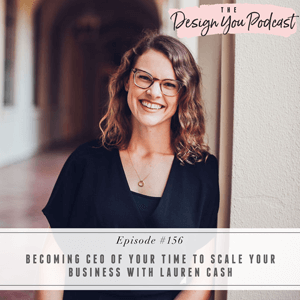
As CEOs, small business owners, or entrepreneurs, it is common to start a business, do a whole bunch of hustling and doing, then become tired, burned out, and not necessarily see the fruits of our labor. This week, I’m bringing my coach onto the show to discuss this further and share some tips to help you go from the doing to the leading in your business.
Lauren Cash, MA, MS, RDN is a Master Certified Coach and the owner of Vivere Co. and is my coach for this year. She helps procrastinating perfectionists become effective entrepreneurs with ease, even at scale. She joins me this week to talk about the importance of being willing to relinquish control and be a beginner at things to get the results you want in your business.
Listen in this week as we discuss how to separate the CEO version from the employee version of ourselves and the thought work required to make big changes in your business. We discuss why it’s crucial to build the right foundations in your business if you want to grow and scale, and the importance of changing the barometer for perfectionism and releasing the standards we’re holding ourselves to.
If you want help creating a business with thriving revenue streams so that you can design the life you really want this year, now is your chance! We’re going to be opening the doors to the Design You Coaching Program really soon, get on our waitlist now!





